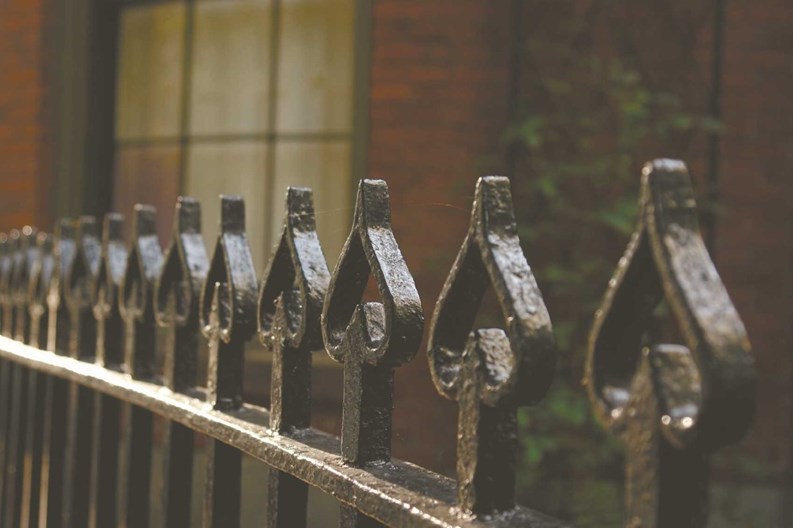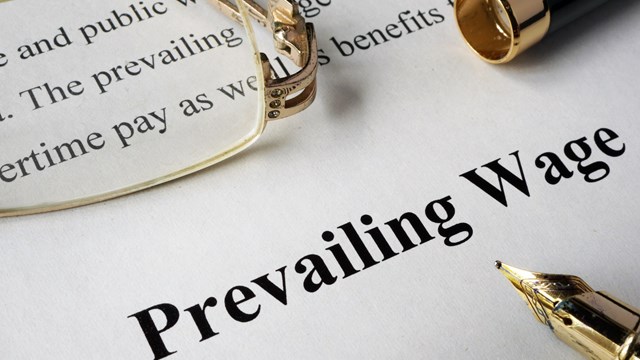With land so developed, it is sometimes impossible for New York City property owners to build, repair or improve their own property without accessing their neighbor’s. But if your neighbor is unwilling to grant you access, what is your remedy?
The answer is Real Property Actions and Proceedings Law Section 881. This statute allows property owners to go to court and obtain a license to enter the adjoining owner’s premises in order to make desired improvements or repairs to their own property. The statute has been interpreted broadly to encompass work ranging from making purely cosmetic changes to erecting an entire building.
This problem is significant because it affects a co-op’s or condo’s finances as well as its ability to meet mandated repair obligations. The most tangible example of this is a situation where under New York City’s Local Law 11 repairs are required to be made to a building’s façade or structure. It is not difficult to imagine a structural configuration in New York City where obtaining access to portions of one’s own building (such as a façade) is not possible without stepping onto or otherwise using an adjacent property or building. Alternatively, in order to obtain a permit from the Department of Buildings for such work it may be necessary to erect a protective shed or bridge on the adjacent property. When the neighbor refuses to grant access, or demands an unreasonable amount of money or other unfair conditions, there is a statutory remedy.
Property owners cannot, of course, simply invoke this statute whenever improvements to their property would be made simpler through access to their neighbor’s. Proceedings under Section 881 should be brought only when: (1) the improvement or repair cannot be made without access to the neighboring property; and, (2) the adjoining property owner has refused to allow access. Even under these circumstances a court needs to balance the interests of each landowner. The license should be granted when necessary, and in cases where the hardship resulting from the refusal of the license stands to outweigh the inconvenience to the neighboring property owner.
All that is required under a Section 881 proceeding is that the cooperative or condominium association under construction files the necessary papers with the court showing the facts making the entry necessary and providing the dates on which entry is sought. The adjoining property owner has the right to submit opposition papers. An appearance before a judge and, if necessary, a hearing where witnesses provide testimony should be scheduled by the court promptly.
A Simple Fee?
The court will impose reasonable conditions upon the issuance of the license, and the party needing access will generally be required to pay the adjoining property owner a license fee. The amount of this fee will vary with the facts of each case but can be expected to be in the range of less than $10,000 each month, payable directly to the neighbor. In determining the license fee courts may consider factors such as the length of time of the license and the degree of interference with the adjoining owners’ property.
It is also possible that the property rights of any tenant of the adjoining property owner may be considered, particularly if there are concerns over safety. The co-op or condo under construction can also expect to be held liable for damages to the adjoining property resulting from the work being done, and may be required to provide the adjoining owner with insurance coverage, a bond, or both. Other terms and conditions may be negotiated, as dictated by the needs, wants and leverage of the parties.
This is not an opportunity for the adjoining property owner to make money. Any property owner taken to court under Section 881 and expecting a windfall will likely be disappointed. Instead, the parties should expect the court to recognize that the license fee is for compensation, not for profit.
For example, there was a case heard in Brooklyn where a developer sought a license pursuant to the statute to enter the adjoining lots of two neighbors. The developer needed the license in order to erect sidewalk bridging and roof protection associated with the developer’s construction of an eight-story building on its lot.
The court noted that the neighbors’ property rights might be significantly affected – they would be unable to obtain financing with scaffolding attached to their property, their property might lose value due to the existence of the eight-story structure, their sunlight and fresh air would be affected, and their own construction plans would be adversely affected.
However, the court found that the rights of the developer would be more severely affected if it was not allowed to develop its lot. The court granted a license for a year and ordered the developer to pay an aggregate $5,000 monthly license fee to the neighbors—$2,500 per month to each neighbor. Clearly the neighbors did not receive a windfall.
Come to an Agreement
While these cases may in fact be handled speedily and with less expense than a drawn-out lawsuit, this may not occur. Therefore, as with most litigation, it is generally advisable for both parties to attempt to come to a mutual agreement rather than submit the dispute to the court. If you find it necessary to access your neighbor’s property in order to perform repairs or make improvements, negotiating first is your best course. Understand that the court is almost certainly going to award your neighbor some sort of financial protection against damages, such as being named an insured under a liability policy; it therefore might makes sense to offer to provide this protection as part of a negotiated settlement. Understand further that while you may find a license fee objectionable, the court likely will require that you pay something, and, despite the expedited nature of these claims, litigation can still be expensive.
On the other hand, if your neighbor is requesting access to the co-op’s or condo’s property, understand that unless you can demonstrate that such access is not necessary to perform the desired improvements or repairs, there is a good chance that the court will grant the access. Also, because the court may not agree with the amount requested by the co-op or condo board for the license fee, it is important to be reasonable. Litigation is expensive—don’t let its costs eat into the license fee you do receive.
Of course, settlement and negotiation do not always succeed. When they fail, Real Property Actions and Proceedings Law Section 881 provides a method to have repairs and improvements move forward as quickly as possible.
Peter G. Goodman, Esq. is a partner and Brian C. Lavin, an associate, with the Manhattan-based law firm of Hartman & Craven LLP.







Leave a Comment